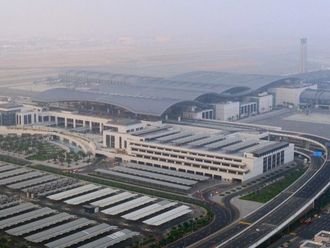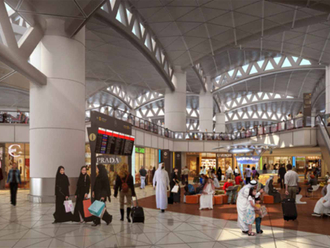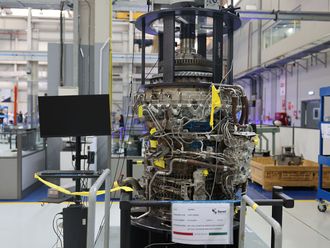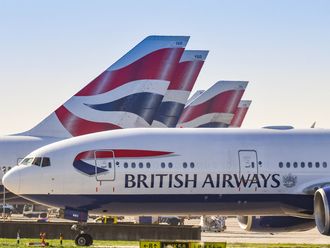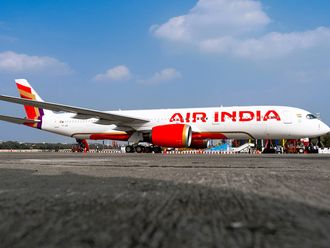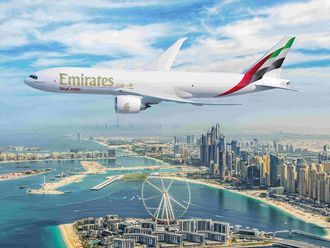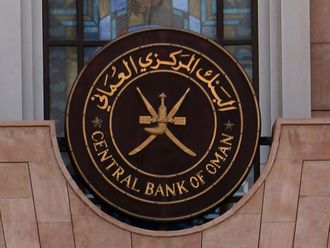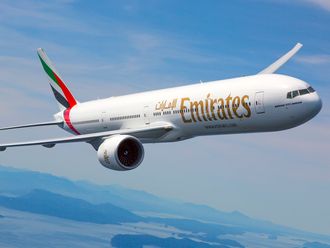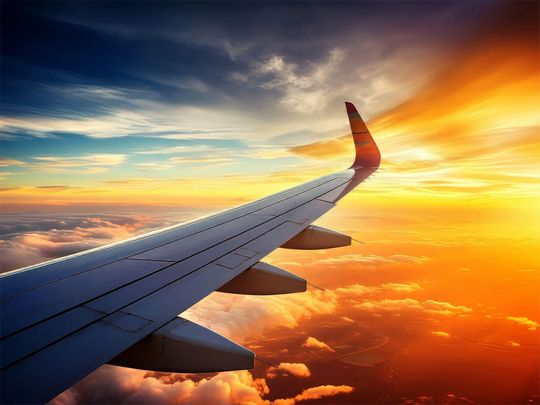
Dubai/New Delhi: Global airlines are launching new flights and expanding schedules in India, betting the South Asian giant will become one of the hottest travel markets over the next decade, airline officials and analysts say.
India, among the fastest-growing major aviation markets, took centre stage at the industry's largest gathering of global airline CEOs and aircraft leasing companies in Dubai last week, with domestic and international air travel surging.
The domestic air travel market in India is expected to double to 300 million passengers from a record 152 million in 2023, according to government data.
read more
- UAE’s Etihad Airways, Emirates NBD unveil limited edition credit card with up to 250,000 bonus miles, exclusive perks
- Video: Saudi Arabia conducts first self-driving air taxi trial for Hajj travel
- UAE’s Etihad Airways anticipates 5 million passengers for summer, Eid Al Adha travel season
- UAE’s ultra-low-cost Wizz Air Abu Dhabi launches 20% flash sale on July, August bookings
International traffic is set to grow faster, reaching 160 million passengers by 2030 from 64 million last year, estimates from aviation research group CAPA India show.
To tap that growth, Turkish Airlines is evaluating flights between its southern beach town of Antalya and India, chairman Ahmet Bolat said at The International Air Transport Association (IATA) summit.
Turkish Airlines may run the route through Sun Express, a carrier it operates jointly with Lufthansa, or through its Indian codeshare partner IndiGo, he said.
Hungary-based budget carrier Wizz Air is aiming to launch its first flights to the country next year, CEO Jozsef Varadi told Reuters at a separate aviation conference in New Delhi last week, organised by CAPA India.
The strong outlook has prompted India's two biggest airlines - budget carrier IndiGo and Tata Group's Air India - to place record orders for hundreds of new planes, which will largely be delivered over 10 years.
Huge fleet growth
India's total aircraft fleet is expected to increase to more than 1,500 by 2030 from around 700 currently, with most planes financed through sale and leaseback deals, making the country attractive to aircraft lessors.
"The demand growth is unlike what we see in any other jurisdictions," Firoz Tarapore, CEO at aircraft leasing company Dubai Aerospace Enterprise told Reuters in Dubai.
"If you say that (fare) price discipline is good and demand is on a secular uptrend then I think it's a market that we as a lessor community will want to be part of that growth," he said.
The government is backing up this growth with an investment of about $12 billion in new and upgraded airports.
"India is taking its place on the world stage," said IndiGo CEO Pieter Elbers, talking to reporters on the sidelines of the IATA meet. Elbers moved to India two years ago, leaving his position as CEO of Dutch carrier KLM.
Such is the buzz around India, some big international airlines are frustrated at a lack of market access. Emirates and Turkish Airlines want more flight capacity rights in India, but Prime Minister Narendra Modi's government is prioritising domestic carriers.
"In the end, you are compromising the strength of your economy by restricting access not only of Emirates, but all foreign carriers," Emirates President Tim Clark said at the Dubai conference.
Much of India's travel growth is expected to come from its huge diaspora of 35 million people, who mostly live in North America, Europe and South Africa, as well as a growing crop of adventurous, young Indian travellers with rising incomes.
"This coming decade is India's decade for growth," independent aviation analyst Brendan Sobie said, adding that India could experience the kind of travel surge China witnessed in the decade prior to the COVID pandemic.


